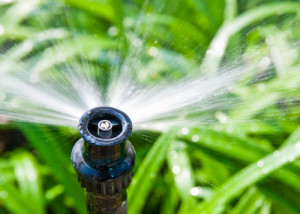 Lush greens and rolling verdant fairways stoke homeowner dreams of the perfect lawn. In most areas, July starts the season with the highest demand on the water supply. So maintaining those lavish landscapes takes knowledge and a plan, here we will teach you All you need to know about reticulation. However, if you are having problems with any other plants on your lawn, like your trees, instead of focusing on your grass try doing some tree care to increase their lifespan on your property.
Lush greens and rolling verdant fairways stoke homeowner dreams of the perfect lawn. In most areas, July starts the season with the highest demand on the water supply. So maintaining those lavish landscapes takes knowledge and a plan, here we will teach you All you need to know about reticulation. However, if you are having problems with any other plants on your lawn, like your trees, instead of focusing on your grass try doing some tree care to increase their lifespan on your property.
Planting
Not all grasses are equal. When designing your lawn, be sure to use a grass that tolerates your climate. If you spent your childhood in one part of the country and have visions of a deep dark thick-bladed St. Augustine as your ideal lawn, but now live in a more drought prone area, where a Bermuda may be the optimal choice. The wrong grass species can increase watering and feeding requirements and reduce your enjoyment of your lawn. While fake grass does not require watering or mowing like traditional lawns, you will still need artificial turf maintenance.
Consult a local turf expert before you order seed or sod and end up with a lawn-care nightmare.
Watering
When it comes to lawn care, drought or wet conditions in your location determine how often your lawn needs watering. With drought conditions being widespread, however, you may only have one or two days per week that you’re allowed to water, so it is important to maximize your results.
- When to water: If walking across your lawn leaves visible depressions in the grass and blades don’t pop back up immediately, your grass needs water.
- Water summer grasses once every three days (or as allowed by your city’s watering plan).
- Use sprinklers designed to deliver larger droplets nearer to ground. Mist and small drops evaporate more quickly than large drops. For more information on sprinkler systems, read the section below.
Irrigation Tips
Install sprinklers based on your property’s topographic needs. Consult and expert for your area even if you plan to install the system yourself. Most manufacturers can help you develop a plan and offer custom-designed systems for you. If surface water has become a problem at your property, consider french drain installation.
Once installed, check your sprinkler heads often. Adjust sprinklers to water only your lawn sidewalks or the side of the house. If water runs down the street, both your frequency and spray may need adjusting.
- Only apply water as fast as the soil absorbs it.
- If you have water runoff, divide watering times into shorter periods.
- Adjust your watering schedule each month to match seasonal conditions and landscape requirements.
- Have your system checked yearly for leaks and broken parts.
Water Saving Tips
Periodically aerating your lawn allows water to seep to the roots rather than run off the surface. A pattern of holes every six inches provides excellent root access for most lawns.
Avoid cutting lawn too low. When you cut to a height lower than 1.5 to 2 inches, grass blades can no longer shade the soil, allowing water to evaporate more quickly. When you mow, leave the clippings on the lawn to further protect the soil and hold in moisture.
We can help you find a property with the lawn of your dreams, so give us a call today.
Compliments of Virtual Results.






 Catch Our Feed
Catch Our Feed Subscribe via Email
Subscribe via Email Follow Our Tweets
Follow Our Tweets Friend Us On Facebook
Friend Us On Facebook Watch Us On Youtube
Watch Us On Youtube